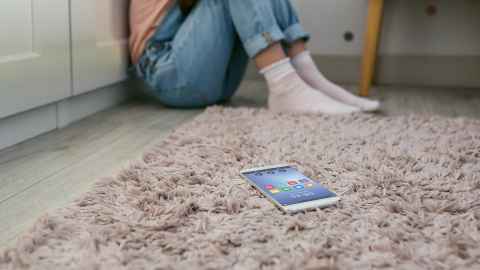Social media: The kids are not alright
19 July 2023
Opinion: Just like we no longer let our children roll around in the back seat with no seatbelts, we should change our approach to the decades-long experiment of social media now we know just how harmful it is to young people, writes Samantha Marsh

On January 11, 1964, the Smoking and Health: Report of the Advisory Committee to the Surgeon General was published officially alerted the American public to the link between tobacco smoking and the massive increase in the risk of lung cancer. It was big news. Every newspaper, radio station, and TV network covered it. Decades later, it would be remembered as the report that “hit the country like a bombshell” and a momentous day in the long history of tobacco control.
In my opinion, May 23, 2023, was similarly momentous, although I couldn't blame you for not knowing it. In Aotearoa New Zealand the day passed with almost no acknowledgement of the publication of the Surgeon General's Advisory on Social Media and Youth Mental Health, a report that said, “there are ample indicators that social media can ... have a profound risk of harm to the mental health and wellbeing of children and adolescents”.
These ‘ample indicators’ included links between social media and body dissatisfaction, disordered eating, low self-esteem, depression, anxiety, exposure to cyberbullying, decreased sleep, and reduced in-person time with family and friends. And these findings led the US Surgeon General Dr Vivek Murthy to say, "we are in the middle of a national youth mental health crisis, and I am concerned that social media is an important driver of that crisis – one that we must urgently address”.
Yet despite these startling revelations, few media outlets covered the report. And if you did happen to hear about it, you almost definitely heard the counter-argument, that healthy social media use is all about 'balance' or it is 'overly simplistic' to say that platforms like TikTok or Instagram are harmful to our teens.
Surgeon General's Advisories certainly aren't simplistic. They're not based on the opinion of a few doctors, the results from a small study, or the views of a single psychologist, teacher, or parent. Instead, they report and comment on the findings from a substantive literature review and recommended resources by subject-matter experts. The resulting statement then calls attention to a public health issue deemed so significant it demands immediate attention. This is what happened in May of this year. Except, at least in New Zealand, it drew little attention.
We have now reached the point where it is irresponsible of us as parents, teachers, health professionals, and policymakers to continue to put these devices, which are designed to elicit addictive-like qualities, in our kids' hands and then expect them to be accountable for their own wellbeing.
Of course, it wasn't a New Zealand report, which might explain our lack of media coverage. I like to think that if it were specific to New Zealand it would have "hit the country like a bombshell" – although I doubt it. And instead of alarming headlines, the limited media coverage we did have was tempered by arguments of “it’s all about balance”, or worst yet, that we shouldn't even monitor our kids' social media use.
When faced with such damning evidence, why are we so reluctant to say that, as a society, we may have made a collective mistake, and perhaps collective change is needed?
We have a long history of putting our kids in danger and changing our actions based on new evidence. In 1975, my mum drove my newborn brother home from the hospital in a bassinet in the back seat of her Morris 1100. Come the 80s, my brothers and I were no longer rolling around, sans seatbelt, in the back of her car. New information had come to light, specifically around the merits of seatbelts, and Mum and Dad changed their behaviours accordingly.
Well, new information has come to light about the impact of social media on our youth. For example, a recent study showed that screen-based activities are structurally changing our kids' brains – and not in a good way. These changes are linked with internalising symptoms in young people, such as depression and anxiety, and mimic changes seen in the brains of people who started drinking at a young age.
I believe we have now reached the point where it is irresponsible of us as parents, teachers, health professionals, and policymakers to continue to put these devices, which are designed to elicit addictive-like qualities, in our kids' hands and then expect them to be accountable for their own wellbeing. We mustn’t continue to be complicit in what the report describes as a decades-long experiment in which our children are unknowing participants.
Where do we start? As the first step, I urge every parent, teacher, and adult responsible for the wellbeing of a young person to read the report. Just read it and try to keep an open mind. Like the 1964 report on smoking, it should hit all of us like a bombshell.
Dr Samantha Marsh is a research fellow at the Faculty of Medical and Health Sciences.
This article reflects the opinion of the author and not necessarily the views of Waipapa Taumata Rau University of Auckland.
This article was first published on Newsroom, Social media: The kids are not all right, 19 July, 2023
Media contact
Margo White I Research communications editor
Mob 021 926 408
Email margo.white@auckland.ac.nz